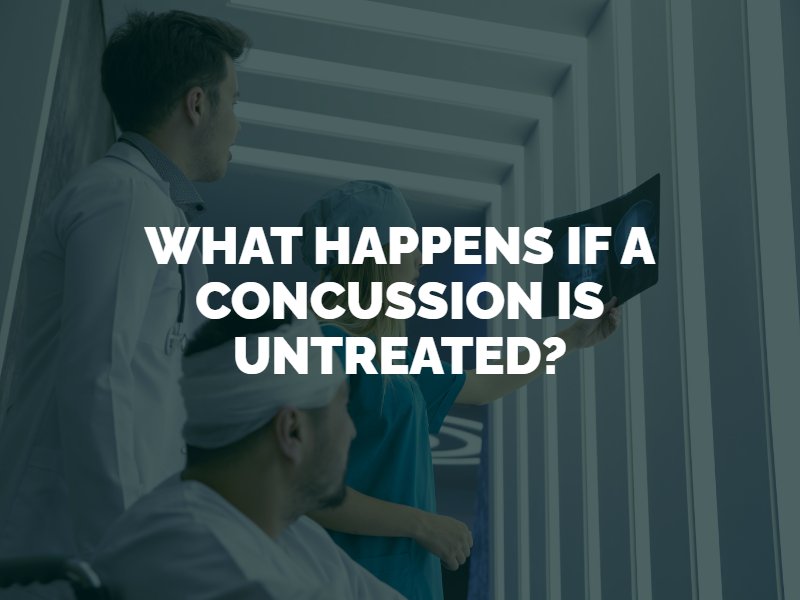A concussion is a type of traumatic brain injury that can occur when the head or skull suffers a bump, blow or jolt in an accident. Concussions can result in debilitating short-term symptoms as well as long-term or permanent effects, in some cases. If a concussion is left untreated, the odds of a victim suffering more severe and extensive symptoms are increased.

Although each case is unique, concussion symptoms often include headaches, dizziness, nausea or vomiting, fatigue, disorientation, and blurred vision. On average, a patient with a mild concussion will notice that his or her symptoms dissipate within about two weeks
The use of medical care or treatments such as medications, therapies and rest can help facilitate healing and alleviate concussion symptoms as quickly as possible. Failing to treat a concussion, on the other hand, could lead to prolonged or more intense symptoms that have more of an impact on the patient’s daily life.
One example is post-traumatic vertigo, which is a prolonged type of vertigo – meaning a sensation of dizziness, imbalance or spinning – that can occur after head trauma. Post-traumatic vertigo can significantly affect a victim’s balance and coordination. Patients who do not have their concussions treated may be more likely to develop this condition.
Despite having a reputation as a “minor” or “mild” injury, a concussion can have significant effects, including the possibility of long-term or permanent cognitive impairment and disability. If left untreated, damage from a concussion could alter a brain’s structure or function and have longer-lasting effects on cognitive ability. This may alter the patient’s attention span, memory, information processing speed, ability to communicate and executive functions.
An untreated concussion could have more noticeable effects on a patient’s behaviors, emotions and personality. Without proper treatments, such as psychological therapy, a concussion victim may not know how to cope with the changes or alterations in brain chemistry that have occurred due to the injury. This could lead to more dramatic mood swings, anxiety, depression and irritability.
Post-concussion syndrome, or PCS, is a potential medical condition that can occur in some patients who suffer concussions where the symptoms last far longer than average. While treatments may not guarantee the prevention of PCS, medical care could reduce the odds of concussion symptoms lasting for a prolonged amount of time – which could be weeks, months or years, depending on the patient. PCC can have a significant impact on a patient’s well-being and overall quality of life.
Failing to receive proper treatment for a concussion could put a patient at an increased risk of suffering additional conditions. An example is a secondary injury, or second or subsequent concussions before the first concussion fully heals. This condition can lead to serious and even fatal health consequences due to cumulative damage to the brain. Other potential risks are neurodegenerative conditions later in life, such as Parkinson’s disease and forms of dementia.
Leaving a concussion untreated could lead to a variety of serious health complications and consequences. Without professional medical care, a concussion could even prove fatal. It is critical to always see a doctor after an accident, such as a fall or car crash, if your head or skull were impacted. If you are diagnosed with a concussion, discuss your legal options with an personal injury lawyer in Denver from The Fang Law Firm. We offer free case consultations.